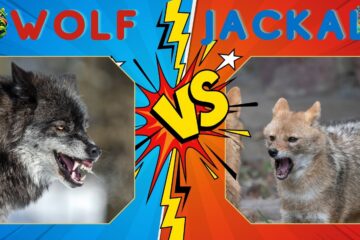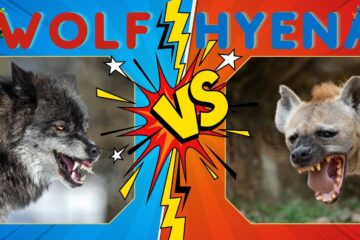Predator vs Scavenger: The Complex Roles of Wildlife in Ecosystems
In the intricate tapestry of the natural world, animals play diverse roles that contribute to the balance and resilience of ecosystems. Among these roles, the distinction between predators and scavengers is particularly fascinating, revealing a spectrum of behaviors and ecological functions. This article delves into the nuanced differences between predators and scavengers, highlighting detailed examples from the animal kingdom to illustrate their complex roles.
Understanding Predator vs Scavenger
Predators are animals that hunt and kill other animals for food. They play a critical role in maintaining the health of ecosystems by controlling prey populations and removing the weak and sick individuals. Predators exist across various ecosystems, from the great white sharks (Carcharodon carcharias) of the oceans to the majestic lions (Panthera leo) of the African savannah.
Scavengers, on the other hand, consume dead animals that they have not killed themselves. They are nature’s cleanup crew, preventing the spread of disease by consuming carcasses that could otherwise rot. Vultures, such as the African white-backed vulture (Gyps africanus), and terrestrial animals like the striped hyena (Hyaena hyaena), are quintessential scavengers.
The Gray Area: Animals That Blur the Lines
While the distinction between predators and scavengers seems clear-cut, many animals exhibit behaviors that blur these lines, engaging in both hunting and scavenging depending on the opportunity and necessity.
Hyenas: Misunderstood Scavengers and Efficient Predators
The spotted hyena (Crocuta crocuta) is a prime example of an animal that defies the scavenger stereotype. Traditionally viewed as cowardly scavengers, research has revealed that spotted hyenas are skilled hunters that can take down prey as large as wildebeests. Their complex social structures and hunting strategies demonstrate the adaptability and intelligence that allow them to switch roles between predator and scavenger based on environmental conditions.
Bears: Omnivores with a Varied Diet
Bears, such as the grizzly bear (Ursus arctos), also embody the fluidity between predation and scavenging. Grizzlies are opportunistic feeders that consume a varied diet, including fish, mammals, and carrion. During salmon runs, grizzlies actively hunt fish, showcasing their predatory skills. However, they will not hesitate to scavenge on carcasses when the opportunity arises, highlighting their adaptability to different food sources.
The Ecological Impact of Predators and Scavengers
The roles of predators and scavengers are critical to the health of ecosystems. Predators help regulate prey populations, preventing overgrazing and promoting biodiversity. For instance, the reintroduction of gray wolves (Canis lupus) to Yellowstone National Park in the United States helped restore ecological balance by controlling elk populations, which in turn allowed overgrazed vegetation to recover.
Scavengers contribute to ecosystem health by recycling nutrients back into the soil and preventing the spread of diseases from decaying carcasses. The decline in vulture populations in India due to the use of the veterinary drug diclofenac, for example, led to an increase in rotting carcasses and a rise in feral dog populations, illustrating the vital role scavengers play in disease control and ecosystem sanitation.
Conclusion
The dichotomy between predators and scavengers is more fluid than traditionally perceived, with many animals exhibiting behaviors that span both roles. This adaptability underscores the complexity of food webs and the importance of each species in maintaining ecological balance. Understanding the nuanced roles of predators and scavengers highlights the interconnectedness of life and the necessity of preserving biodiversity for the health of the planet.
As we delve deeper into the lives of these animals, it becomes evident that each species, whether predator, scavenger, or somewhere in between, plays an indispensable role in the environment. By transcending the simplistic labels of predator and scavenger, we can appreciate the intricate relationships that sustain the natural world.
Author is a passionate writer with an engineering background, driven by a deep love for animals. Despite a successful entrepreneurial career, Saad's true passion lies in sharing his knowledge and insights about animals with the world.
Wolf Vs Jackal: Mystery Unsolved
May 3, 2024Wolf vs Dog: Mystery Unsolved
May 2, 2024Wolf vs Hyena: Mystery Unsolved
May 2, 2024
Leave a reply Cancel reply
More News
-
Sika Deer: Elegant Inhabitants of East Asian Forests
June 11, 2024 -
Quokka: The Happiest Animal on Earth
June 3, 2024 -
Quoll: Marvellous Carnivore of the Australian Wilderness
July 30, 2024






